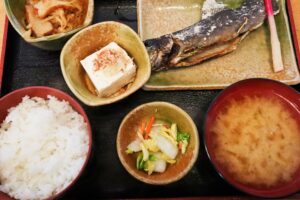Understanding the Link Between Menopause and Bone Loss
Why Menopause Triggers Bone Density Loss
Menopause causes estrogen levels to drop sharply. Estrogen plays a vital role in protecting bones by regulating bone resorption. When this hormone declines, the body breaks down bone tissue faster than it can rebuild, leading to decreased bone density.
The Long-Term Risks
Osteopenia and osteoporosis can develop rapidly after menopause. These conditions increase fracture risk, reduce mobility, and impact long-term independence. According to the National Osteoporosis Foundation, one in two women over age 50 will break a bone due to osteoporosis.
Nutrition: Your First Line of Defense
Eat Calcium-Rich Foods
Calcium supports bone structure. Women over 50 should aim for 1,200 mg daily. Good sources include:
-
Low-fat dairy (milk, yogurt, cheese)
-
Leafy greens (kale, bok choy)
-
Calcium-set tofu
-
Fortified plant-based milks
Don’t Forget Vitamin D
Your body needs vitamin D to absorb calcium. Sunlight helps, but during winter or in northern regions, food and supplements become essential. Include:
-
Fatty fish like salmon
-
Egg yolks
-
Fortified foods (orange juice, cereal)
Consider a supplement if your levels are low. The recommended daily intake is 800–1,000 IU for postmenopausal women.
Add Magnesium and Vitamin K
Magnesium helps convert vitamin D into its active form. Vitamin K2 directs calcium to bones instead of arteries. Nuts, seeds, natto (fermented soybeans), and green vegetables support both nutrients.
Exercise: Build and Maintain Bone Strength
Weight-Bearing Activities
Your bones respond to physical stress. Walking, hiking, dancing, and stair climbing all stimulate bone formation. Aim for at least 30 minutes most days of the week.
Strength Training
Muscle pulls on bone, encouraging density growth. Use resistance bands, hand weights, or machines. Focus on large muscle groups—legs, hips, back, and arms.
Balance and Flexibility
Preventing falls is just as crucial. Include yoga or tai chi to improve coordination and stability.
Natural Supplements That Support Bone Health
Consider a Japanese-Inspired Approach
Traditional Japanese diets, rich in soy, seaweed, and small fish, support bone strength. One standout is the Japanese mandarin, or mikan. This fruit contains beta-cryptoxanthin, a compound shown to stimulate bone-building cells and reduce inflammation.
A supplement like Juveriente Bone Strength Complex, which includes mikan extract, offers a natural, food-derived option. It may help slow down bone loss during menopause while supporting other age-related concerns like joint and skin health.
To learn more, visit Juveriente’s website.
Isoflavones from Fermented Soy
Soy isoflavones act like weak estrogens and may counteract the estrogen loss after menopause. Fermented forms like miso or natto are more bioavailable and gentler on the digestive system.
Lifestyle Tweaks That Make a Big Difference
Cut Down on Bone Thieves
Limit caffeine, alcohol, and salt—all of which can drain calcium from bones. Avoid smoking, which accelerates bone loss and delays healing after fractures.
Maintain a Healthy Weight
Too thin or too heavy? Both extremes put bones at risk. A balanced weight helps maintain hormonal health and keeps joints stable.
Reduce Stress
Chronic stress increases cortisol, which weakens bone tissue. Practice meditation, deep breathing, or gentle stretching to keep cortisol in check.
Don’t Skip Regular Checkups
Bone Density Tests
A DEXA scan measures bone mineral density. Women over 65—or younger if you have risk factors—should get tested regularly. Early detection means more effective prevention.
Talk to Your Doctor
Discuss whether medications, hormone therapy, or supplements fit your needs. Every woman’s menopause journey is unique.
Conclusion: It’s Never Too Late to Start
Improving bone density during menopause isn’t just possible—it’s empowering. With the right mix of nutrition, exercise, supplements, and smart habits, you can build a strong foundation for decades to come. Embrace these changes as part of a new, health-conscious chapter of life.
For more in-depth guidance on bone health strategies, visit National Institutes of Health Osteoporosis Resources.
Take the benefit of fermented isoflavone of Miso through our supplement
The key ingredient in miso soup, which Japanese people consume daily, is miso (fermented soybean paste). It not only provides plant-based protein but also contains isoflavones that are broken down through fermentation. These isoflavones help regulate hormone balance and are known to offer various health benefits.
Juveriente®’s Effisoy, launched in 2016, based on fermented soy bean germ extract has been loved as a natural menopause relief since its launching in 2016.
Its primary function is to boost the weakened synthesis of a hormone precursor, DHEA. It helps the precursor, DHEA. Rebalancing the precursor will eventually recover your hormones in line with your natural balance. It will help you refresh your various functions for your beauty, including the base metabolism to lose weight.
Here are some of the real product reviews in our Amazon shop.
“Restful sleep finally!!”, “I Am Now Free of Hot Flashes!!”, “Lifesaver”

The only supplement to contain fermented soy isoflavone beside Japan.










